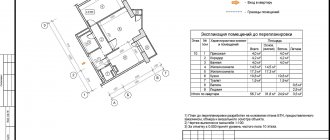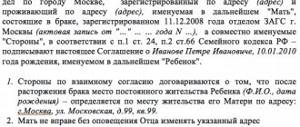Every law-abiding citizen should be aware of how much noise you can make near public, residential buildings and in your living space on weekends. This is necessary in order not to violate the law and not disturb other people. How much noise can you make on Saturday, Sunday and non-working holidays? There is no single law in the Russian Federation that could answer this question, but for this purpose, almost every region has its own rules.
As you know, certain types of noise can cause damage to human health and even lead to death. To measure the level of sound vibrations, a single unit of measurement is provided - decibels (dB). According to sanitary standards, the recommended noise level at night should be 40 dB, during the day – 55 dB. For comparison:
- 40 dB is obtained during a quiet conversation, and this noise is also produced by a running PC;
- 60 dB measures conversation in raised voices;
- a child's crying is estimated at 80 dB;
- 100 dB is emitted by a train traveling in the subway;
- 110 dB is produced by the stereo system;
- An airplane takes off from 120 dB;
- 200 dB can be fatal.
According to the sanitary standards of the Russian Federation, daytime is the period from seven in the morning to 11 in the evening.
At this time, the noise level in places where people live should be within 55 dB. There is no distinction between days of the week in these documents.
When can you make noise on weekends?
In different parts of the country, the time from which you can make noise on weekends varies. This often results in confusion. Thus, the law stipulates that in the capital it is allowed to exceed the permitted noise level on weekends from ten in the morning to ten in the evening. After the specified time, the volume of sounds should be forty decibels. In order not to break the law, it is necessary to make the TV and other devices quieter.
There is also another law in force in Moscow, which states that on weekends you can make noise and carry out work related to repairs only from nine in the morning to seven in the evening. These pieces of legislation contradict each other.
According to them, it turns out that from 7.00 to 10.00 and from 19.00 to 23.00 it is not allowed to carry out construction work accompanied by noise, but noise of other origins is allowed.
The hours from which you can make noise on weekends in some regions of the Russian Federation are as follows:
- in St. Petersburg from seven in the morning to 23.00;
- in Yekaterinburg from eight in the morning to 22.00;
- in the Nizhny Novgorod region from eight in the morning to 22.00;
- in Kazan the time is set from six in the morning to 23.00;
- in Voronezh from seven in the morning to ten in the evening, etc.
By the way, most laws do not differentiate between days of the week. The restrictions are only written for time. In other words, it is allowed to make noise during the day, but not at night. Exceptions are some regions, such as St. Petersburg, Rostov, Samara, Nizhny Novgorod and Oryol regions. There, the law prohibits noisy repair work on weekends and national holidays. In order to make repairs during this period, you must obtain written permission from your neighbors.
What kind of noise is considered a violation?
Considering that the term “loud noise” refers to a figurative term, legislative norms provide for a specific designation of noise.
The unit of noise measurement is decibels (dB). Legislative acts provide for the following standards:
- During the daytime, the approved norm is from 40 to 55 dB.
- At night – from 30 to 45 dB.
To compare the sound level that complies with the standards, you can listen to the sound emitted by the vehicle alarm, the level of which is 80 dB.
For information on what actions need to be taken if the sound volume in a multi-storey apartment is exceeded, check out the visual graphic table.
Rules of the law on silence in Moscow and the Moscow region
Legislative standards for maintaining peace in the capital define a list of sounds that are classified as noisy, with a ban on their reproduction at the time approved by regulatory documents. This list includes:
- Music from holiday organizers located next to residential buildings.
- Moving furniture.
- Loading works.
- Loud quarrels and scandals.
- Dog's bark.
- Finishing construction work during redevelopment.
- Loud TV shows and loud music.
Additional rest time for Muscovites, according to the latest changes in the law, is defined as rest from 13.00 to 15.00. This rest is provided for children's sleep during daylight hours.
Thus, Muscovites can carry out repairs and move furniture on weekdays: from 09.00 to 13.00 and from 15.00 to 19.00.
On weekends and holidays, loud noises are allowed in the following ways:
- On Saturday.
- When carrying out repairs on a residential area, creating a danger for residents.
- When preventing and eliminating natural events.
- During religious gatherings.
In other cases, making noise on weekends is prohibited.
Regulatory documents on quiet mode in the Moscow region provide for a longer period of time for noisy activities. Therefore, the rest time when you cannot knock loudly is:
- from 22:00 to 8:00 – on weekdays.
- from 22:00 to 10:00 – on weekends and holidays.
In addition, additional daytime rest time is accepted from 13:00 to 15:00.
If established standards are violated, the violator will be subject to financial penalties, in accordance with Art. 6.3 and 6.4 of the Code of Administrative Offenses of the Russian Federation.
Below is a visual poster showing the time of noise restrictions for Muscovites.
List of violations provided for by law
According to Russian legislation, violations are provided for, namely:
- noise from technical devices and equipment;
- sound from car alarm;
- loud screaming, singing;
- noise from musical instruments;
- noise during repair work;
- other actions.
This is not a complete list. It can be supplemented endlessly. The main criterion in all cases is what level of volume these actions produce and whether they disturb others. There are also exceptions to the law. So, if an alarm went off when a vehicle or other object was broken into, this will not constitute a violation. Also, noise generated during emergency work will not be a violation of the law.
How to fight against offenders?
It is advisable for neighbors to independently agree on when and how much noise they can make on weekends. If this cannot be done peacefully, then it is necessary to involve law enforcement agencies. The district police officer, first of all, must conduct a conversation with the violators. If this does not help, then next time he issues an administrative violation report. This documentation will become the basis for imposing penalties.
It is also recommended to record the noise in any available way. This is necessary in order to prove the fact of violation to law enforcement agencies. After all, it often happens that while the local inspector arrives to the call, the noise stops. This recording will also become evidence at trial.
If the noise produced harms the health of neighbors, namely, it causes insomnia, increased blood pressure, and nervous disorders, then after recording a violation by the sanitary and epidemiological service, the attending physician and the local inspector must file a lawsuit. The judicial authority is obliged to consider the claim and award compensation for moral damage.
The following categories of citizens are allowed to be held administratively liable for failure to maintain peace and quiet:
- citizens over 16 years of age;
- legal entities;
- officials.
Punishment for violators
Russian legislative acts provide for the following options for bringing to responsibility:
- warning;
- fine. Moreover, it is collected in favor of the state.
- Different regions of the country have their own fines:
- in the Moscow region, penalties range from 1,000 to 8,000 rubles;
- the fine for legal entities in Moscow is in the range of 40,000–80,000 rubles;
- in St. Petersburg, the fine for citizens is 500–4000 rubles;
- fine in the Northern Capital for officials - 5,000–10,000 rubles;
- The fine for legal entities in the Northern Capital can be 25,000–50,000 rubles.
In order not to break the law and not spoil relations with neighbors, you need to clearly know how much you are allowed to exceed the normal noise level in your region.
Apartment buildings are the most common type of housing for most citizens. Of course, getting along with neighbors of different temperaments is not so easy, and therefore there are a number of administrative rules. Eg ,
How long can you make noise in an apartment in 2021? We need to figure it out.
If you cannot independently solve the problem of tactless citizens in your neighborhood, then relying on legal grounds will not be superfluous.
Any city is a constant noise, and after hard everyday life we dream of relaxing in tolerable conditions. Therefore, making noise, celebrating or swearing is allowed until 23.00. If at any moment the peace of citizens is suddenly disturbed, then it is allowed to call a squad to solve a minor problem.
Reasons to call the police:
- There are rehearsals or performances in the house.
Any playing on an instrument, even on wooden spoons, must be stopped at the specified time or transferred to the rehearsal room. Otherwise, the apartment owner will be fined, but this contingent also understands the warnings. - Operation of the equipment.
Television and music are now a serious source of problems if houses have poor sound insulation. Sometimes you can solve the problem using the classic old-fashioned method: knocking on the battery. - Repairs.
Yes, renovations of premises, especially in new buildings, last for years. And the first permanent residents are not even aware of the unplanned psychic attack.
General provisions
They got tired of the noise, and people decided to go to their neighbors, because even during the daytime there was constant discomfort. And the source of problems on weekdays, according to the law, can do whatever he wants: make noise, create quarrels and other entertainment. You can do this during the day. But there are standards for everything, and even for the noise made, although more on that later.
Any large city in Russia has time restrictions regarding noise and silence. And the norms are as follows: during daylight hours (from 7 am to 11 pm) you can make noise within 55 decibels.
District police officers are armed with instruments that measure such indicators. Therefore, if there is a clear violation, then calling a police officer to a problem neighbor is a way to protect your civil rights.
Fines for violations
Everyone wants to live in peace, especially with new neighbors. It is rare when someone deliberately follows childish principles and deliberately “punishes” each other in such ways. But you can also be held accountable.
When patience runs out and no arguments hit the target, then they no longer turn to the police.
Let's consider an action plan for dealing with careless neighbors:
- We contact the sanitary and epidemiological station department, from where field specialists are required to measure the noise level and record the data on paper.
- We are writing a paper to Rospotrebnadzor, which also considers complaints about this kind of trouble.
- We call the local inspector. Such a measure can be completely anonymous, and all further moralizing will be carried out by people in uniform.
When neighbors make noise at night and do not comply with noise standards during the repair process, the following fines are appropriate: for noisy repairs from 1 to 2 thousand rubles, and for ordinary night noise up to 1 thousand.
We understand what kind of country we live in, and that for some it means that neighbors call the police - this is a kind of insult. Therefore, because of little things, polite people are sometimes forced to put up with arbitrariness, which is extremely strange for the entire civilized world. After all, the violator is punished.
Noise standards
Everything is simple here:
- Day up to 55 decibels.
- Night up to 45 decibels.
There are even some exceptions to the rules for areas located near railway tracks or highways, and for the day up to 10 decibels can be added to the total value, and for the night no more than 5 units.
How much noise do different sources produce:
- 30 units – human voice or operation of electrical appliances.
- 40-45 decibels – dialogues in moderate tones.
- 55 decibels – noise from a car.
- 75 units – vacuum cleaner operation.
- 78 decibels – baby crying.
- 95 decibels - the joke from the hammer drill is not even in the next apartment.
- 120 units – jackhammer operation under the window.
What actions can break the silence?
If there are doubts about the operation of any devices or actions, then the following list will definitely disturb the peace of the neighbors:
- Sound reproducing devices (TV, tape recorder, computer).
- Musical instruments. Here even good singing is a reason for concern.
- Security alarm under the windows.
- Pyrotechnics in the yard.
- Moving, loading building materials, repairs using power tools.
- Other household work.
But it also happens that some actions are forced to disturb our peace of mind. And more specifically:
- Work to prevent crime or eliminate accidents. Emergencies and natural disasters do not pass without noise, and here you will have to come to terms.
- Cultural, sporting, religious events or ceremonies. All this is also not without shouts, songs and rituals.
- Other actions agreed upon with the district administration.
Results
Everyone wants to live together, and each of us does not want to develop conflict. And even prolonged holidays in the evening are not always a reason for the arrival of an outfit. Therefore, general harmony in courtyards and entrances has been created over the years; this, unfortunately, is our mentality.
Almost every resident of apartment buildings has encountered the problem of noise in the neighborhood, which interferes with sleep or work. But is it possible to fight this and if so, how?
What to do if you yourself are the source of noise and thereby greatly irritate the inhabitants of your home? To answer these questions, it is enough to know what you are entitled to if you suffer from a noisy neighbor. You also need to remember how long you can tolerate noise, and when it’s worth fighting it.
The twenty-first century is deservedly recognized as the noisiest. And this is not at all surprising, since around us there are continuous sources of noise in the form of cars, household appliances, and repair equipment. People themselves are often the source of noise, because not everyone knows how to control the volume of their own voice when communicating.
All this noise can have a detrimental effect on the general well-being of any normal person. The human body needs regular and quality rest. Against the background of noise interference, people often cannot rest properly. As a result, insomnia, migraines, chronic fatigue and irritability can develop.
So that every person could rest and accumulate energy for the next day, Federal Law No. 52 “On Sanitary and Epidemiological Standards” was developed, regulating the well-being of the population.
One of the points of this law is devoted to permissible noise exposure during the day. The first law of this kind in our state was adopted back in 2002. Since then, it has been constantly supplemented and updated.
In 2021, some changes were made to the law that will help protect against neighbors making noise above the permissible level at inappropriate times. By knowing the basic requirements of this law, you can avoid unnecessary irritation from neighbors and receiving fines for being too loud.
In order to know how and what to deal with, you must first understand what exactly is considered a violation of silence.
By law it is:
- Talking or shouting too loudly;
- Pyrotechnic products;
- Repair work and equipment that can disturb the peace of the residents of the house;
- Construction work that is carried out close to or directly in a residential building;
- Sound amplifiers used in public places (including those operating while the car is moving);
- Loud music or singing;
- Repeated activation of the car alarm;
- Household appliances with increased noise output;
- Animals that make loud noises.
Noise of any kind that can disturb the peace of surrounding citizens, both during the day and at night, can become a cause for conflict with all the ensuing consequences.
The permissible noise level during the daytime is 40 decibels, and at night – 30. Violation of these standards may result in administrative punishment in the form of a fine.
Until what time do neighbors have the right to make noise?
Specific time frames regulating the possibility of noisy activity of neighbors are not specified in the law “On Silence”. The right to regulate this issue in a temporary space is vested in regional authorities.
Thus, in each individual region, the time of the “noise day” may differ slightly.
A similar restriction is adopted by local councils. The average time during which the silence regime must be observed in the regions of the country is between 23:00 and 7:00.
In addition to the above rules, others also apply:
- Continuous noisy construction work cannot exceed 6 hours;
- Repair work, regardless of whether it was carried out daily and whether it was noisy, should not last more than 3 months;
- The noise coming from special equipment should not be higher than 40 decibels;
- If there is a need to carry out any construction or repair work at a time not intended for this, it is imperative to agree on this issue in writing with all neighbors without exception;
- Any music lessons, development of practical skills in playing musical instruments or singing should be stopped when a period of silence occurs;
Saint Petersburg
Actions that disturb the peace and quiet of citizens:
- use of sound-reproducing and sound-amplifying sound reinforcement devices;
- screaming, whistling, knocking, moving furniture, singing, playing musical instruments and other similar actions;
- use of pyrotechnics;
- noisy repair, construction and loading and unloading operations.
When you can't make noise. From 23:00 to 08:00 on weekdays and from 23:00 to 12:00 on weekends and non-working holidays. The exception is the use of pyrotechnics on New Year's Day, from 23:00 on December 31 to 4:00 on January 1.
What is the responsibility? Depends on what exactly broke the silence. For “using sound-reproducing and sound-amplifying sound amplification devices,” as well as “screaming, whistling, knocking, moving furniture, singing, playing musical instruments and other similar actions,” you may receive a warning or a fine:
- for citizens - from 500 to 5000 rubles;
- for officials - from 25,000 to 50,000 rubles;
- for legal entities - from 50,000 to 200,000 rubles.
for the use of pyrotechnics (firecrackers, flare guns and others) - fine:
- for citizens - from 1000 to 5000 rubles;
- for officials - from 25,000 to 50,000 rubles;
- for legal entities - from 50,000 to 200,000 rubles.
for noisy repair and loading and unloading work - fine:
- for citizens - from 3,000 to 5,000 rubles;
- for officials - from 25,000 to 50,000 rubles;
- for legal entities - from 250,000 to 500,000 rubles.
for noisy construction work - fine:
- for citizens - 5,000 rubles;
- for officials - from 25,000 to 50,000 rubles;
- for legal entities - from 500,000 to 1,000,000 rubles.
for actions that disturbed the peace and quiet of citizens in apartment buildings on weekends and non-working holidays from 8:00 to 12:00, regardless of the type of noise - a warning or a fine:
- for citizens - from 500 to 5000 rubles;
- for officials - from 25,000 to 50,000 rubles;
- for legal entities - from 50,000 to 200,000 rubles.
Document regulating the regime of silence.
Article 8 of the Law of St. Petersburg dated May 31, 2010 No. 273-70 “On Administrative Offenses in St. Petersburg” (as amended on December 25, 2019).
Time limits according to which neighbors can make noise on weekends
On weekdays, loud repairs or other sources of noise do not often disturb neighbors, since most people are at work during the day. But doing noisy work on weekends can cause increased dissatisfaction and even lead to the emergence of conflicts and scandals on this basis.
In order to avoid clashes, neighbors can agree in advance how and when they can make noise. Otherwise, you need to be aware of local regulations that allow you to work at high volumes on Saturdays and Sundays or other legal holidays.
By law, in almost all regions of the country, the silence regime on Saturday is no different from weekdays. But on Sunday, neighbors do not have the right to violate the silence throughout the day.
This rule also applies to all holidays except January 1st. Although there are, of course, still regions in which Saturday is also a day to rest from noise.
Dealing with noisy neighbors
If you are unlucky with your neighbors, and they allow themselves to make noise as much as they please, you have the opportunity to influence their way of life. It is certainly quite difficult to achieve a result in this war, but it can be done legally.
To begin with, all civilized people have the right to try to reach an agreement and ask a neighbor not to make noise when it is already prohibited or to make noise less when his work or entertainment exceeds the permissible volume.
If such negotiations do not produce results, then you have the right to contact law enforcement authorities. They must act according to the law, taking decisive action against violators who do not know or do not want to know how long and how loudly they can engage in high-profile cases.
Violators of civil peace have the right to impose an administrative fine, which can become a significant means of punishment.
If a lawbreaker repeats his illegal actions, law enforcement officials have the right to impose a double fine on him. In case of malicious disobedience to the decision of local authorities and violation of the law “On Silence”, he can be arrested for 15 days.
The size of the fine is determined by the decision of local councils and can range from 1,000 to 50,000 rubles. The amount depends not only on the region, but also on who the fine is imposed on (legal entity or individual).
If police representatives refuse to respond to a call, and a neighbor still does not want to pay attention to how noisy he is in an apartment building, you don’t just need to call the duty station. For a more effective response, you can ask the police for the serial number of your call, which they assign to each call.
You also have the right to demand an explanation of why they refused to respond to the appeal. As a rule, such a conversation will become an impetus for police officers to perform their duties.
The problem of noisy neighborhoods concerns many people. When purchasing a home, everyone dreams of making their stay in the house comfortable and cozy. But quite often, this idyll is disrupted by not entirely respectable and noisy neighbors.
So, the neighbor on the left has been hammering and drilling something since early morning. From above there is a stormy squabble between the spouses, which is accompanied by shouting, breaking of dishes, and throwing out furniture. And I really want peace and quiet, especially in the evening on weekdays after work.
What to do in such a situation: continue to put up with the constant noise or find justice for the restless neighbors? Help can be found in the legislation of the Russian Federation, or more precisely in the “Law on Silence”.
Under what circumstances is noise illegal?
When noise from construction work exceeds established standards, such actions can be regarded as disturbing the peace and quiet of the population. For illegal acts, the construction company will definitely be held accountable, followed by a fine of 40-80 thousand rubles.
Since such provisions are present in the current legislation, people whose peace has been disturbed have a reason to contact the authorized bodies. Here it is important to draw up the document correctly and submit an application to the department, where the fastest way will be to achieve the desired result.
What does the “Law of Silence” say?
Living in an apartment building and not making noise or disturbing the peace of the neighbors is something that rarely happens. At least once in your life you have to make repairs, celebrate an anniversary, or calm a crying baby.
Noise has different consequences for human health. At best, you can get a nervous breakdown, at worst, death.
In Russia there is a “Law on Silence” that regulates the time when you can make noise on weekdays and weekends.
It is immediately worth noting that there are no regulations for the entire country.
Each subject of the Russian Federation has the right to establish by law the following:
- when you can’t make noise in the apartment;
- night time boundaries;
- acceptable volume level;
- repair procedure.
Here is an example by city, from what time and until how much noise you can make:
- Moscow – 6:00 – 22:00;
- St. Petersburg – 7:00 – 23:00;
- Ekaterinburg – 8:00 – 22:00;
- Kazan – 6:00 – 23:00;
- Voronezh – 7:00 – 22:00.
If we take the average for Russia, it turns out that you can’t make noise from 22:00 to 08:00.
In addition, many regions legally differentiate the silence regime by day of the week: on weekdays (Monday to Friday) - one time, on weekends - another.
The same example is Moscow. The law of the local government establishes that making noise is prohibited from 11 pm to 7 am. It also specifies separately until when repair work can be carried out: on weekdays the ban is introduced from 7 pm to 9 am, as well as from 1 pm to 3 pm. On weekends and holidays, noisy repairs are strictly prohibited prohibited.
Advice: when going on a visit or moving to a permanent residence in another region, ask in advance how much noise can be made in the apartment and outside it. This will allow you to avoid collisions with residents of other apartments and violation of the law, which entails a fine.
Regional features
Each subject of the Russian Federation has the right to establish its own requirements, as well as time frames that allow repair and construction work to be carried out in apartment buildings. It is worth noting that all regions have similar points, namely:
- Prohibition on construction work on weekends. This provision also applies to holidays established for the entire country.
- The time period during which work is permitted varies everywhere, however, everywhere it can begin no earlier than 9 a.m. and be completed no later than 7 p.m.
- According to the law, repairs in an apartment building cannot last longer than 6 hours daily. A break must also be included in this period.
- Repair work in a building with many apartments cannot take more than 3 months.
- The permissible noise level cannot exceed 40 dB.
Noise Limits
The answer to the question of how much noise is allowed can be found in sanitary standards. Thus, SanPiN defines night time from 23 to 7. It is during this period of time on weekdays that sound greater than 45 dB must be stopped.
According to the standards, the maximum noise level in a residential area that is not harmful to health is a sound of up to 55 dB during the day and up to 45 dB at night.
You can measure the sound level with a special device, and if you don’t have one, you should use a hint.
The following are the most popular noise sources, expressed in decibels:
- whisper – 30 dB;
- people talking – 45 dB;
- screaming during a quarrel – 60 dB;
- baby crying – 77 dB;
- working vacuum cleaner – 74 dB;
- refrigerator – 42 dB;
- printing printer – 50 dB;
- telephone call – 80 dB;
- screwdriver – 65 dB;
- hammer drill – 94 dB;
- jackhammer - 117 dB;
- music in a nightclub – 110 dB;
- flying airplane – 140 dB;
- explosion – 200 dB.
Sound of 90 dB, which lasts for a long time, negatively affects the human central nervous system. It leads to insomnia and nervous breakdowns.
Agree, it is very difficult to go to work on weekdays and perform your duties efficiently when your sleep is regularly interrupted. At a noise level of 100 dB, hearing loss is likely.
When starting a renovation or a friendly party, you should be guided not only by how much noise you can make, but also by taking into account the level of sounds produced.
○ Permissible noise level.
Permissible noise standards are established by SanPiN 2.1.2.2645-10. Thus, in the daytime, which is determined from 7 to 23 o'clock, the maximum value of the maximum permissible noise level is 55 dBA, and at night, from 23 o'clock to 7 am - 45 dBA.
At the same time, it is possible that this standard indicator may be exceeded by 5 dB during the daytime. For residential buildings adjacent to highways and railways, the excess can reach 10 dBA.
The noise level can be determined using special instruments or through a comparative assessment.
The SES has special professional sound level meters that allow you to accurately determine what noise is coming from the neighbor’s apartment where renovations are being carried out.
You can take measurements yourself, using special programs from the Internet for smartphones or computers.
The easiest way is to make a comparative assessment. For example, the sound of a working hammer drill produces 94 dBA, and a jackhammer produces 117.
Actions that lead to a violation of the law
Violation of silence, according to sanitary standards, are:
- the use of all kinds of technical devices that reproduce sound;
- turning on a car alarm;
- playing musical instruments;
- loud screams, singing, whistling;
- Carrying out loading, unloading and repair work;
- other actions.
But not all noisy activities are considered illegal. There are exceptional moments. So, if the alarm went off during a car break-in, the owner of the vehicle is released from liability.
Elimination of accidents and consequences of natural disasters is also not illegal and can be carried out both on weekdays and on holidays, including at night. You will have to put up with the crying of the baby. For him, weekdays and weekends are always the same.
How to pacify noisy neighbors
The noise from the neighboring apartment has become constant, and this applies not only during the day, but also at night. What to do?
- You can try to talk to the troublemaker and find out the reason. Very often, a heart-to-heart conversation has an impact. If this does not help, you should unite with your neighbors (after all, the offender is not only disturbing you) and write a collective complaint. As a rule, this gives results.
- Negotiations unsuccessful? The next step is to contact the local police officer. He will conduct an explanatory conversation with the violator, and if this does not have an impact, he will draw up a protocol of the administrative offense.
- Go to court. To do this, you need to have strong evidence: testimony from neighbors, copies of statements to the district police officer and administrative protocols, audio or video recordings, a certificate from a medical institution about deteriorating health. In this case, you can demand compensation for moral damage, which will be a good measure to combat a troubled neighbor.
Knowing the “Law of Silence” will help protect yourself and your loved ones from noisy neighborhoods. Just don’t forget that anyone can become an unwitting participant in loud noises, disturbing the peace and rights of other citizens.
When planning a renovation or a party, warn your neighbors about it, agree on when and until what time the event or construction work will take place.
Friendly neighbors are always better. Besides, you may find yourself in their place.
According to our legislation, making noise is allowed from 7 a.m. to 11 p.m. Very often people make repairs without paying attention to the people around them, the babies crying behind the wall. Sick, exhausted by illness and your incessant repairs.
Refresh your apartment, tear down a wall or install a jacuzzi - it's your choice. Only your neighbors have nothing to do with it.
You need to think about older people and young children who need naps during the day. It is for such cases that a break is provided. Of course, you can enjoy your favorite music, actively play with your child, and also hang a picture bought in a store on the wall. But at the same time, you need to know when you can make noise.
Failure to comply with the law may result in prosecution.
Exceptions may be:
- performing emergency rescue operations;
- performing urgent installation, construction and other works;
- public safety;
- life support;
- natural disasters;
- holding sporting events;
- official cultural events.
Until what hour can you make noise in your apartment on weekdays and weekends?
At this stage there is no law defining noise levels at night. The “Silence Law” notifies and defines the period of time during which any noise is undesirable.
In some constituent entities of the Russian Federation, there is a law of regional significance that regulates the basic rules.
Times vary by region:
- Moscow from 22 to 06;
- Voronezh from 22 to 07, etc.
The Duma discussed a law that could prohibit making noise on holidays and weekends. In this case, violators of the law will have to pay:
- 10 thousand rubles (ordinary people);
- 200 thousand (for legal entities).
Today there are more lenient fines in the amount of 3 thousand rubles
. Violators can also be arrested for 15 days.
What if it's a renovation?
Considering this issue, we can highlight several main points. In many regions, some restrictions apply: on weekends, holidays and state days, it is strictly prohibited to carry out any construction work, make minor repairs, not to mention the complete refurbishment of residential premises.
According to the law, from 9.00 to 19.00 it is prohibited to perform the following types of work:
- clean up and remove waste from the work site;
- use elevators to transport construction waste;
- cause material damage to adjacent premises.
Work with flammable and flammable substances is permitted until 16.00 on weekdays. Since an unwanted odor will spread and the risk of fire will significantly increase. In some regions, construction work can be carried out until 20.00. Not so long ago, repairs were allowed on weekends. Repairs could be carried out from 9.00 to 19.00.
Repairs can be carried out no more than 6 hours a day. If you don’t have enough time, then you need to rest a little (an hour break). After this, you can continue the repair.
The duration of construction work should not exceed 3 months.
This rule does not apply to new buildings. In such cases, repairs can take up to six months. Some types of construction and repair work must be regulated by the relevant services.
The responsibilities of the san. epidemic station includes:
- fixing the regulatory framework;
- carrying out noise measurements, etc.
If you decide to file an application against your neighbors, then you need to contact your local police officer. It is advisable to have one witness.
Law
Every country has its own “silence and noise laws.” Certain regions of the Russian Federation have their own norms and rules for determining noise levels. However, in many areas this law does not exist at all.
It is necessary to realize that legislative acts are somewhat contradictory to each other.
If you respect your neighbors, then you should be aware of noise restrictions. To maintain public peace and order, all work related to repairs and redevelopment must be carried out in accordance with our legislation.
How long can you listen to music in an apartment 2021
It is important to remember that there are situations when significant noise can be produced by faulty utility networks (plumbing, batteries through which hot water flows). In this case, it will not be possible to bring the management or other service company to administrative liability.
But you can file a lawsuit against them and recover moral damages.
How long can you listen to loud music in an apartment according to the law of the Russian Federation 2019
How long can you listen to music so that your neighbors can hear it? If you follow the rules of good neighborliness, then the question of how long you can listen to music loudly does not arise at all.
Essentially, the problem should be of concern to neighbors of loud music lovers so that they know when to file a noise complaint.
When the music starts to be loud How long can you listen to music loud What threatens lovers of loud music When the music starts to be loud All people have different preferences in music, and they also like to listen to it at different volumes.
How long does the silence law allow you to listen to loud music?
- apartments;
- entrances;
- yards;
- playgrounds;
- institutions for temporary stay of people;
- dachas
We recommend reading: Unilateral divorce in the registry office without children
The sound level that the speaker can produce varies up to 160 dB.
Accordingly, this refers to very loud noise, which can be compared to construction work. And for construction work there is an additional time limit from 9 am to 7 pm. Such work includes all types of work exceeding the permissible noise level of 40 dB.
Therefore, you can listen to music loudly, exceeding 40 dB, only until 7 pm, not forgetting about a break for a quiet hour.
How long can you listen to music loudly?
If the sound insulation fails and the neighbors hear the music, you will have to maintain silence. This regime is established at the local level, so it differs in different cities of Russia. According to Art. 3.13 of the Moscow Law “Moscow City Code on Administrative Offenses” dated November 21, 2007 No. 45, citizens are prohibited from making noise from 11:00 pm to 7:00 am.
How much noise can you make in an apartment building according to the law of the Russian Federation 2019
The woman would have liked to fall asleep, but that was not the case. The owners of the apartment were celebrating another celebration through the wall. The neighbor was mournfully singing a karaoke song, which probably hurt the ears of those around her, and small children apparently explored the closet, endlessly slamming the doors. To talk to her neighbors, Varvara Alexandrovna needs to go down and go to another entrance.
How long can you listen to loud music in an apartment?
The law explains to citizens how they can influence noisy neighbors and call them to order. In addition, there is the human side of relationships. If your neighbors have small children, you need to understand that they need much more rest than adults. Especially after 9 pm, when the kids are getting ready for bed, and loud music will disturb them.
From what time and until how long can you make noise in an apartment according to the law?
Frequent complaints from residents tired of repairs forced regional authorities to make amendments regarding their restrictions on weekends and holidays. Now you can drill in your apartment only on weekdays from 9 am to 7 pm. Some regions allowed high-profile repair work to take place on Saturday. However, in all territories of Russia they cannot be done on Sunday.
We recommend reading: How long can you make noise in an apartment in Russia?
Rules for listening to music in apartments of apartment buildings
If a citizen listens to loud music at night, then there is a high probability that he will get into trouble.
The neighbors of such a person do not have to suffer, but dial the number of the local police officer and law enforcement service. Police officers must respond.
Upon arrival, they are required to fill out an application and also call witnesses to prove the existence of the circumstances of the offense. They then determine the volume level in decibels and draw up a protocol.
How much noise can you make in an apartment in 2021?
The situation is different in St. Petersburg, our “Northern capital”; the night period is in the range from 22 pm to 8 am. The fine in St. Petersburg for such a “serious” offense for individuals will be 5 thousand rubles, for organizations - 500 thousand rubles.
How long can you listen to music on weekends 2021 article
The better the sound insulation, the louder you can listen to music without disturbing anyone
Note! The concept of “loud - quiet” is very subjective. But there are specially developed sanitary and epidemiological rules that establish a noise level that is not harmful to health and is therefore acceptable
Maintaining silence in apartment buildings. Federal law on silence in apartment buildings
Multi-apartment buildings have common apartments included in them. This means that every apartment owner must fulfill the requirements that are prescribed in the housing and civil codes and the Constitution of the Russian Federation.
The most detailed rules are established by the HOA employees themselves or an authorized organization. When the general rules are adopted, they must be voiced and agreed upon with all residents at general meetings.
Joint property:
- the plot of land on which your house is located;
- places for general leisure (for discussing accumulated issues);
- basements, landings, roofs, stairs, etc.
Your guests and relatives must follow these rules.
There are also HOA rules that you must follow:
- It is prohibited to make noise after 22.00, but there are some exceptions.
You can’t keep up with the renovations, you need to move in quickly, but because of work it’s not possible?
If this is necessary, you need to coordinate everything with the neighbors of the apartments nearby and adjust it correctly. Some people are confident that loud music does not cause inconvenience to others . Nobody regulates noise, which means you can do everything:
- to turn on the music;
- engage in construction at inappropriate times, etc.
- The procedure for redevelopment of apartments.
- Compliance with fire safety rules.
- Maintaining order and comfort in the elevator, entrance, etc.
The noise law states:
- all residents are required to adhere to established fire safety and sanitary standards
in their home; - the apartment
you own can
only be used for its intended purpose; - Tenants must bear the costs
of furnishing their home; - It is prohibited to carry out any work at night
if it exceeds the permissible noise level; - keep firearms only in a safe
and have a mandatory permit; - The use of toxic and explosive substances in residential buildings is prohibited.
This is a list of rules that you must absolutely follow in order to maintain good relations with your neighbors. This will make your life easier and safer. In this case, comfortable and safe living in your apartment will be guaranteed.
Living in apartment buildings often becomes a test for a person’s health and psyche. It is quite difficult to live in peace with a neighbor who has carried out renovations using massive technical units. The dust and smell of paint are not very pleasant.
For example
, vibration and noise can affect the mental and physical health of humans and future generations. This means that residential buildings must meet all established rules of residence and all international standards.
Violation that occurs at night causes irritation and anxiety to neighbors, and can also seriously harm health.
Every person has the right to proper rest and sleep. Noisy neighbors can hinder your relaxation.
According to the law, the noise level must be:
- from 23 to 7-30 dB;
- from 7 to 23 40 dB.
If the troublemakers do not want to resolve the problem, then you need to submit a complaint and a corresponding statement to the district police officer. If violations are irregular, law enforcement officers will conduct a preventive conversation. Regular complaints from neighbors will result in a fine.
How loud can you listen to music in an apartment by law?
Not allowed at night:
- watch TV, listen to the radio, etc., without headphones;
- carry out repairs, rearrangement, assembly of furniture parts, etc.;
- set off fireworks;
- make various very loud sounds: singing, whistling, and so on.
But not all loud noises at late hours are prohibited. There are special situations that are allowed:
- Loud celebrations that take on an urban scale, during which loud music is played and fireworks are set off.
- Operational search activities to detain persons suspected of committing crimes.
- Disasters: fire, flood, earthquake, etc.
Noises heard in an apartment building can negatively affect the central nervous system, interfering with sound sleep and productive work.
Law on silence in Moscow and St. Petersburg
Law on “Maintaining peace and quiet” in Moscow at night (from 7.00 to 23.00). The same time limits apply in St. Petersburg. In addition, there is another law on “Weekend Quietness”, which allows noise from 9.00–12.00 to 19.00.
It is also prohibited to use inventory and any equipment that exceeds the permissible vibration level.
In addition, there is a law stating the procedure for transforming a building in residential premises, following this, repair work can be carried out on ordinary days from 9.00 to 19.00. If the noise is of a different kind, then until 23.00.
The law protects both apartment buildings and public institutions:
- sanatoriums;
- public places;
- kindergartens;
- hospitals, etc.
The bill includes a list of actions that may disturb the peace of our citizens:
- use of pyrotechnic devices;
- performing repair work;
- playing any musical instruments;
- use of any musical equipment;
- singing, etc.
Allowed time
The time at which citizens, as well as organizations, have the right to carry out repair work is established in the table above.
Excessive noise levels are allowed between 7 a.m. and 11 p.m. At night (namely from 23 to 7) it is not allowed to exceed the sound noise standards. On weekends and holidays, any type of construction work is prohibited. Of course, small deviations from established standards are allowed.
The ban on noise at night applies not only to construction and repairs, but also to general noise. This includes playing instruments, shouting, loud music, etc. The use of pyrotechnics is also prohibited (on any days except New Year's Eve).
The noise level should not exceed 55 dB during the day and 40 at night.








